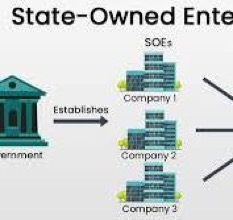
The Gambia government has finally endorsed the privatatisation of Gamtel and the outright sale of Gamcel for obvious reasons: bad performance.
According to the minister for Communications & Digital Economy (MOCDE), Ousman O. Bah, a cabinet paper has been agreed and passed to materialise the privatisation of Gamtel and the outright sale of Gamcel.
The Minister explicitly advanced how they arrived at the decision of coming up with a cabinet paper to endorse the privatisation and sale of the two state institutions.
“My advice to the President was to prepare a cabinet paper that would inform the suggestion of the Ministry with these two institutions, which resulted in the approval of going into privatisation, so that private partner participation can inject investment, since government does not have the funds to continue to support these two institutions, which are highly in debt,” the minister was said to have told the National Assembly last week (The Point 5/04/2024).
While it is expected to be contributing to the state and national development, Gamcel is said to be wallowing in debt of over D14 million. “Thus, a company cannot continue to run in that state, and they are not contributing to the state currently,” the minister said.
Factors or reasons responsible for this setback range from outdated technology, to bloated number of staff, limited revenue generation efforts or skills, low level of service innovation, inadequate investment in technology and infrastructure upgrade.
A further World Bank-supported study for SOE Reform Project was done on the financial and operational viability of Gamtel. This study, according to the minister, found also “Gamtel highly in debt with overpopulated staff and operational inefficiency”.
The bad performance of these state enterprises have continued to solidify the case against state-owned enterprises that they hardly prove worthwhile or beneficial to a state, hence the need or call for privatisation, which the government has been compelled to do.
While SOEs in many cases and in other parts of the world have performed well and have been highly successful contributing massively to national development, that has not been the case for Gamtel and Gamcel hence their privatisation. Even in The Gambia, there are other SOEs that are not performing badly. So why Gamtel and Gamcel?
The contributing reasons advanced by the Minister should serve as a base for drawing lessons of how to effectively manage and monitor the other SOEs so they prove worthwhile and profitable to the state.
According to World Bank, SOEs play a major role in many developing and emerging economies, where governments use them to achieve economic, social, and political objectives: to deliver and extend access to services, fill gaps in markets, develop key sectors or regions, and provide employment.
“However, the mixed institutional mandates of SOEs and their political importance often pose performance and governance challenges,” the Bank states. “This can mute transparency and accountability, making oversight and regulation difficult.”
While government could always use or take as a last resort the decision to privatise or sell SOEs when they prove to be a liability, they could as well be very proactive in applying effective measures to ensure SOEs serve their purposes well.
Intrinsic aspects surrounding SOEs that government should be mindful of are the ‘principal-agent problem’, the ‘free-rider problem’ and the ‘soft budget constraint’ problem as described by renowned economist and author Ha-Joon Chang.
While the ‘principal-agent problem’ has to do with fundamental information gap - leaving many things not properly explained, arranged, or organised - between the owners (the principal) and the workers (the managers/agents) of enterprises, the ‘free-rider problem’ has to do with the unconcerned or carefree approach by the citizens who theoretically own the public enterprises. On the other hand, the ‘soft budget constraint’ problem has to do with underperforming SOEs sipping subsidies or bailouts from government while they underperform.




